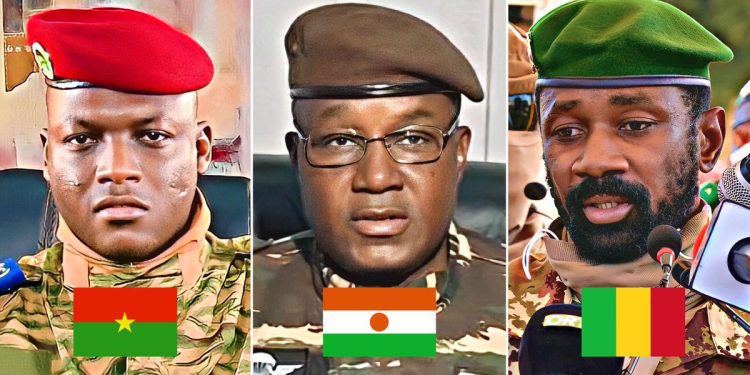Mali, Burkina Faso, and Niger have officially withdrawn from the Economic Community of West African States (ECOWAS). Leaders of the three nations led by military generals are accusing the regional economic bloc of imposing “inhumane” sanctions in an attempt to reverse recent coups in their nations.
The junta leaders jointly announced their decision on state television, claiming that ECOWAS has strayed from its founding ideals and pan-Africanism principles after nearly five decades of existence.
The juntas said, “Furthermore, ECOWAS, under the influence of foreign powers, betraying its founding principles, has become a threat to its member states and its populations, whose happiness it is supposed to ensure.”
ECOWAS, in response, stated that it was not notified of the decision by the three countries to withdraw. The protocol of the bloc dictates that withdrawal takes up to one year to be completed. “Burkina Faso, Niger, and Mali remain important members of the Community, and the Authority remains committed to finding a negotiated solution to the political impasse,” ECOWAS affirmed.
ECOWAS, formed in 1975 with the aim of promoting economic integration among member states, has long been considered West Africa’s top political and regional authority. However, recent years have seen the bloc struggle to address the surge in coups within the region, leaving citizens dissatisfied with the perceived lack of benefits from their rich natural resources.
Oge Onubogu, Director of the Africa Program at the Wilson Centre think tank, has reacted saying, “In parts of West Africa, ECOWAS is fast losing its effectiveness and support among citizens, who see it as representing only the interests of the leaders and not those of the masses.”
Sunday’s withdrawal announcement is the latest development in a series of events intensifying political tensions in West Africa, especially since Niger experienced a coup last year. Notably, the three nations—Burkina Faso, Mali, and Niger—have formed a security alliance after severing military ties with France and other European nations, turning to Russia for support.
The joint statement by the juntas accused ECOWAS of failing to assist the three countries in combating “existential” threats like terrorism, a common reason cited by their militaries for overthrowing democratically elected governments. The statement criticised ECOWAS for adopting an “irrational and unacceptable posture” by imposing sanctions that violate its own texts and further weaken populations already affected by years of violence.
Cheta Nwanze, an analyst at the Lagos-based SBM Intelligence geopolitical research firm, suggested that the withdrawal signifies a diminishing influence of the traditional superpowers in West Africa—France and Nigeria. Nwanze also emphasized the recently unsuccessful meeting between Niger and ECOWAS, which the junta in Niger saw as an opportunity to criticize the organization for its response to the coup.
As West Africa faces this rupture within ECOWAS, the region grapples with the broader implications of weakened regional cooperation amid evolving geopolitical dynamics.



